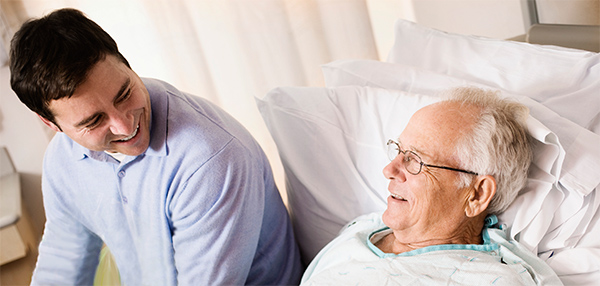As first-year medical students at Albert Einstein College of Medicine of Yeshiva University, we focus in our Introduction to Clinical Medicine course on developing and sharpening our communication and history-taking skills. The wards of third year will come quickly enough, and we need to be ready to interact with patients.
In this intense first-year course, there are readings to do, videos to watch and ample opportunities for feedback in small-group sessions. The purpose behind each of these exercises is clear—yet sometimes we can forget that our actual focus is a fellow human being with a very real illness. It is easy to get caught up in the rigidity and nuances of medical interviewing.

This is where Project Kindness might come in, at least for me and many of my classmates. Just launched in full in 2014, Project Kindness is a volunteer program for medical students and a partnership with Montefiore Medical Center’s Jack Weiler Hospital that allows Einstein medical students to make social visits with patients and their families. No white coats to slip on. No patient histories to gather. No vitals to check. The sole purpose is to interact on a human level with patients.
A substantial portion of my class has chosen to get involved, for what must be a variety of reasons. I volunteered in a mental-health unit and a rehabilitation unit while in undergrad and simply wanted a way to continue that practice of making social visits with hospital patients.
Turning Humanism into Action
Most of my classmates, if not all us, came to medicine because we were drawn, at least to some extent, by the humanistic nature of this career. That entails many aspects, but one major one is empathy. I see it as an essential value for a physician.
Physicians are trained not only to master their specialties and become grounded in biomedical science, but also to be empathetic caregivers. Getting involved in something like Project Kindness during the first year may seem aggressive, but soon enough, my classmates and I will be responsible for the care of others; their health, their futures, will be influenced by our care. We will want to understand them. Yet how can we, really? We’ve likely never been through what they’ve been through, lived the same way they have or experienced the same kind of pain they’re experiencing.
Take, for example, the case of Paul.* It was a cloudy fall day in October. When I met him he was bedridden and appeared to be in a lot of pain. I asked, “What’s bothering you today?” He replied with frustration, “The doctors have done the best they can, but it’s a slow process for this pain to go away. I’ve been here for three weeks now, and I just want to get back out there.”
“I can see why this must be so frustrating and hard for you,” I said to him.
He continued, “I think the pain has begun to lessen over the past few days. I had surgery a few weeks ago, you see. They’re hoping to transfer me to physical therapy soon.”
“That’s great to hear!” I said. “And what did you mean by ‘getting back out there’? What are you looking forward to?“ I inquired.
“Sailing my boat. And playing with my grandchildren,” his eyes seeming to widen. “Do tell me more,” I encouraged.
During my encounter with Paul, I couldn’t completely understand what it must feel like to have surgery and be bedridden because I have never had major surgery or been immobilized for weeks. While this is hardly analogous, my first thought after hearing his story was a beginning snowboard adventure I had many years ago. It was my first time on a snowboard, and after I fell repeatedly while trying to get the hang of it, it was painful to move because my entire body was sore. Then there was also the entire week of pain I endured after my wisdom teeth were removed. Each of these instances was clearly not so severe as Paul’s pain, but what I found important was that I could empathize with, and thus share, the frustration and pain he was feeling.
What Project Kindness provides is a way for us to be exposed to the feelings that patients such as Paul might be experiencing: love, happiness, joy and contentment—but also anger, frustration, anxiety, distress, loneliness and grief. Each of these emotions, though complex, can be universally experienced. But they can’t be fully appreciated by completing a reading or watching a video.
Empathy is a virtue that needs to be cultivated through actual doing. Project Kindness is a way of sharing. It keeps us more in touch with our empathetic side. And, we hope, it will brighten a patient’s day and over time help us become more caring, communicative doctors who engage and actively listen to our patients.
* Patient’s name changed to protect confidentiality.
Editors’ Note: Project Kindness is supported by a generous grant from Gemiluth Chessed of Greater New York.

